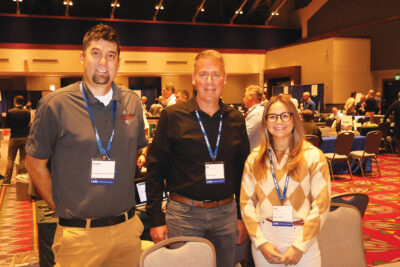In a case brought by NAHB, which wrote this report on nahbnow.com, and Michigan builders, a federal court ruled that all NAHB members who received Paycheck Protection Program (PPP) loans can have their loans forgiven regardless of whether the loans were made in contravention of the Small Business Administration’s (SBA) eligibility rules. The court’s opinion also provides several important procedural wins that will benefit NAHB in a wide range of cases.
The U.S. District Court for the Eastern District of Michigan ruled that the SBA wrongly applied eligibility criteria to the PPP, which prevented certain NAHB members from accessing these much-needed funds.
NAHB, along with the HBA of Michigan and HBA of Southeastern Michigan filed the lawsuit at the height of the pandemic-induced economic downturn so that all NAHB members could access PPP funds to help keep their businesses afloat.
While Congress was clear in its intent to offer PPP protection to a wide range of the U.S. economy, Treasury and SBA nonetheless applied pre-existing regulations that essentially shut out a broad swath of the residential construction industry. Specifically, SBA imposed a pre-existing regulation and guidance document that limited eligibility for certain businesses, including “passive businesses owned by developers and landlords that do not actively use or occupy the assets acquired or improved with the loan proceeds,” and “speculative businesses” that include “building homes for future sale.”
The victory in this case accomplishes two main goals. First, it ensures that NAHB members who received PPP loans will have their loans forgiven. The judge agreed with NAHB’s position that the plain language of the statute creating the PPP prevented SBA from applying eligibility regulations that sought to exclude NAHB members who build homes “on spec,” multifamily property owners, and land developers from receiving PPP loans and loan forgiveness during the height of the pandemic.
While PPP funding is no longer available, the forgiveness process is ongoing, and the court’s opinion will have a direct and tangible benefit for builders, developers, and property owners who are awaiting loan forgiveness.
Second, the court’s opinion provides important procedural wins. These include the court’s ruling that it will not defer to an agency’s interpretation of a statute unless the statute is truly ambiguous. This will limit the ability of federal agencies to offer new, expansive interpretations of existing statutes.
The judge also ruled against the government’s procedural claims that NAHB lacked “standing” – the individual interest necessary to have a complaint heard in federal court – and that the case was moot because the PPP is no longer an active program.
The decision is a victory on the substantive points NAHB raised against the imposition of SBA’s eligibility rules, providing NAHB members with certainty that their loans will be forgiven, as well as establishing favorable case law on procedural issues that the government and others often use to try and keep NAHB and its members out of court.
For more information, contact Amy Chai at achai@nahb.org.









